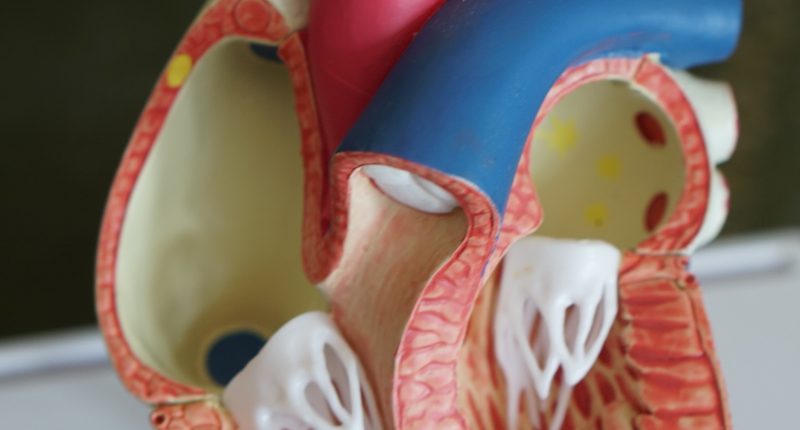5 signs of clogged arteries – Clogged arteries are a common problem that can lead to serious health complications.
The arteries are the blood vessels that carry oxygen-rich blood from the heart to the rest of the body. When these arteries become blocked, it can cause a decrease in blood flow, which can lead to a heart attack or stroke. Below are 5 signs of clogged arteries that you should be aware of:
Chest pain or discomfort
This is often one of the first warning signs of clogged arteries. Chest pain can feel like pressure, tightness, or squeezing in your chest. It may also spread to your shoulders, arms, neck, or jaw. You may experience this pain when you exert yourself physically or when you’re under emotional stress. If you have any type of chest pain, it’s important to see a doctor right away to rule out other conditions.
Shortness of breath
Shortness of breath is a common and noticeable symptom of clogged arteries. The arteries are the blood vessels that carry the blood from the heart to the rest of the body. When the arteries become clogged, it leads to a condition called atherosclerosis. This is when the arteries narrow and harden due to a build-up of plaque. This can restrict the flow of blood to the heart and other organs, leading to a number of symptoms, including shortness of breath. When the heart doesn’t get enough blood, it can’t pump properly and the body doesn’t get the oxygen it needs. This can cause shortness of breath, even when you’re at rest. Shortness of breath is also a common symptom of heart failure
Dizziness or lightheadedness
Dizziness or lightheadedness can be a sign of clogged arteries.-When arteries are clogged, it means that they are not able to carry as much blood to the brain.-This can cause dizziness or lightheadedness because the brain is not getting enough blood.-If you experience these symptoms, it is important to see a doctor so that they can check your arteries and make sure that they are not clogged.
Fatigue
One of the most common signs of clogged arteries is fatigue. This is because the heart has to work harder to pump blood through the arteries. This can lead to a decrease in energy levels and an overall feeling of fatigue. If you are experiencing fatigue, it is important to see your doctor to rule out other potential causes.
Heartbeat irregularities
One of the most common signs of clogged arteries is heartbeat irregularities. This can manifest as an irregular heartbeat, skipped beats, or a fluttering sensation in the chest. These heart irregularity symptoms are often caused by plaque buildup in the arteries that supply blood to the heart muscle. When the arteries are narrowed or blocked by plaque, not enough blood can reach the heart muscle, causing it to beat erratically.
Pain in other parts of the body
When arteries become clogged and damaged, it can lead to pain in other parts of the body. This is because the blocked arteries restrict blood flow to the areas they supply. This can cause pain, numbness, or tingling in the extremities. It can also lead to organ damage and failure if not treated promptly.
What are the foods that cause clogged arteries?
A diet high in saturated and trans fats, cholesterol, salt, sugar, high blood pressure, diabetes, and smoking can lead to the development of plaque in your arteries, which can narrow or block them. This can lead to a heart attack or stroke.
To help keep your arteries clear, focus on eating plenty of fruits, vegetables, and whole grains. Limit your intake of saturated and trans fats, cholesterol, salt, and sugar. And make sure to get regular exercise to keep your heart healthy.
How to prevent clogged arteries
The best way to prevent clogged arteries is to live a healthy lifestyle. This means eating a healthy diet, exercising regularly, and not smoking.
Eating a healthy diet includes eating plenty of fruits, vegetables, and whole grains. It also means avoiding processed foods, saturated fats, and excessive amounts of salt.
Exercising regularly helps keep your heart healthy and decreases your risk of developing cardiovascular disease. Aim for at least 30 minutes of moderate-intensity exercise most days of the week.
Not smoking is one of the most important things you can do for your health. If you smoke, quitting is the best way to reduce your risk of developing cardiovascular disease.
Conclusion
Clogged arteries can be a serious problem, so it’s important to keep an eye out for the signs that indicate you may have this issue. The 5 signs outlined in this article are chest pain, shortness of breath, fatigue, dizziness and numbness or tingling in your hands or feet. If you experience any of these symptoms on a regular basis, make sure to visit your doctor as soon as possible to get checked out. Taking early action can help ensure that any potential issues with clogged arteries don’t become worse over time. | 5 signs of clogged arteries
Also read | 10 signs you may have a stomach parasite









